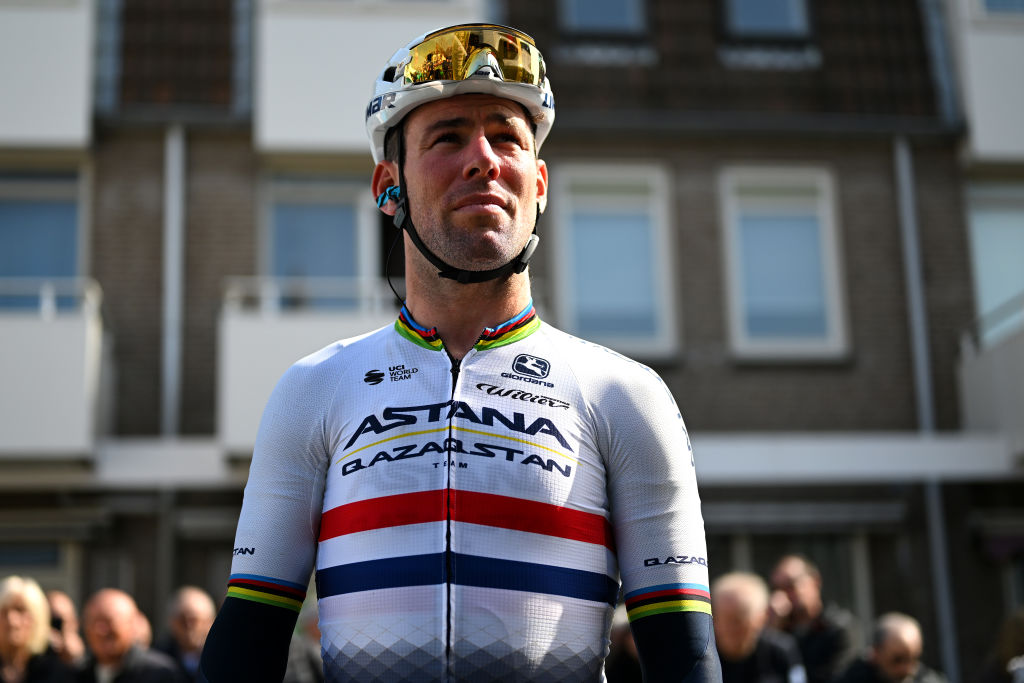
Mark Cavendish has spoken at length about the personal problems and clinical depression that he faced during his struggles with the Epstein-Barr virus in 2018 and 2019, with doctors deeply concerned about his condition.
Cavendish spoke openly during the Netflix documentary called "Mark Cavendish: Never Enough” that will be released on August 2.
He is currently recovering from surgery after he crashed out of the Tour de France on stage 8, just a day after he finished second in the Bordeaux sprint and confirmed he had the speed to win a record-breaking 35th Tour de France stage win.
The Manxman was in Paris on Sunday and was expected to talk to Astana Qazaqstan team manager Alexander Vinokourov about his return to racing and the idea of racing on in 2024 and returning to the Tour de France. Vinokourov has already said he is open to making Cavendish an offer and appears ready to strengthen his lead-out train.
38-year-old Cavendish announced he would retire at the end of 2023 but may want to extend his career but may now opt to have a final swansong at the 2024 Tour de France.
He has already made a remarkable comeback from the Epstein-Barr virus, with the Netflix documentary revealing the full extent of his personal battle to return to full health and to race again.
Cavendish spoke at length during the 90-minute documentary about his mental health and how he overcame it with the help of family and specialist medical help.
"You don't go from being the best in the world to not being even capable," Cavendish said in the documentary. "How has it happened? It turned into stress at home. I was a nightmare to live with."
“I didn’t have anything, didn’t want anything, didn’t do anything, didn’t feel anything,” Cavendish said of his clinical depression.
“You’re just fucking empty, you know. The sense of worthlessness. I’d lost any get-up that I’d ever had, just to be a person, be a dad, to be a friend, a husband.”
“I was a nightmare to live with,” Cavendish added. “Was I going fucking crazy? What the fuck was wrong with me?”
Fortunately, Cavendish reached out for medical help and worked with Dr Helge Riepenhof, the chief physician at BG Hospital in Hamburg, who was the T-Mobile team doctor where Cavendish raced during the early years of his professional career.
Via Dimension Data he also worked with Dr David Spindler, a cognitive neuroscientist, who now works with UAE Team Emirates.
“I made sure that the situation wasn’t acute enough to have to call someone to put him into hospital,” Spindler said during the documentary.
“Peta was extremely concerned for her husband. Cavendish was saying: ‘Is my life worth it any more? This is not worth it.’”
The Netflix documentary reveals Cavendish’s full personal story as he became the best sprinter in professional cycling, his personal problems and his return to success with Deceuninck-Quick Step in 2021, when after a late call-up he won four stages and the green points jersey at the Tour de France and equalled the stage win record set by Eddy Merckx.
The documentary shows Cavendish’s joy at winning the world title in Copenhagen in 2011, riding for and alongside Bradley Wiggins at the 2012 Tour de France but also the behind-the-scenes arguments with team management when Cavendish struggled at the Dimension Data team. It includes interviews with his wife Peta, former teammates Mark Renshaw, Bernard Eisel and Peter Kennaugh plus long-time team staff such as Rolf Aldag and others.
The promotional image used for Mark Cavendish: Never Enough is from the 2021 Tour de France when he won his first stage of the race, after a three-year absence from the race and after he had overcome his mental and physical problems sparked by Epstein-Barr virus. The trailer includes tense moments at Dimension Data.
The documentary was made before this year’s Tour de France, Cavendish’s retirement announcement and his crash.
“I will continue trying to win for as long as I believe I can win,” Cavendish said in the trailer.
Cavendish will now have a starring role in the second series of the Tour de France Unchained Netflix series and perhaps even be back at the 2024 Tour de France, to go out on his terms and physically and mentally in good health.







